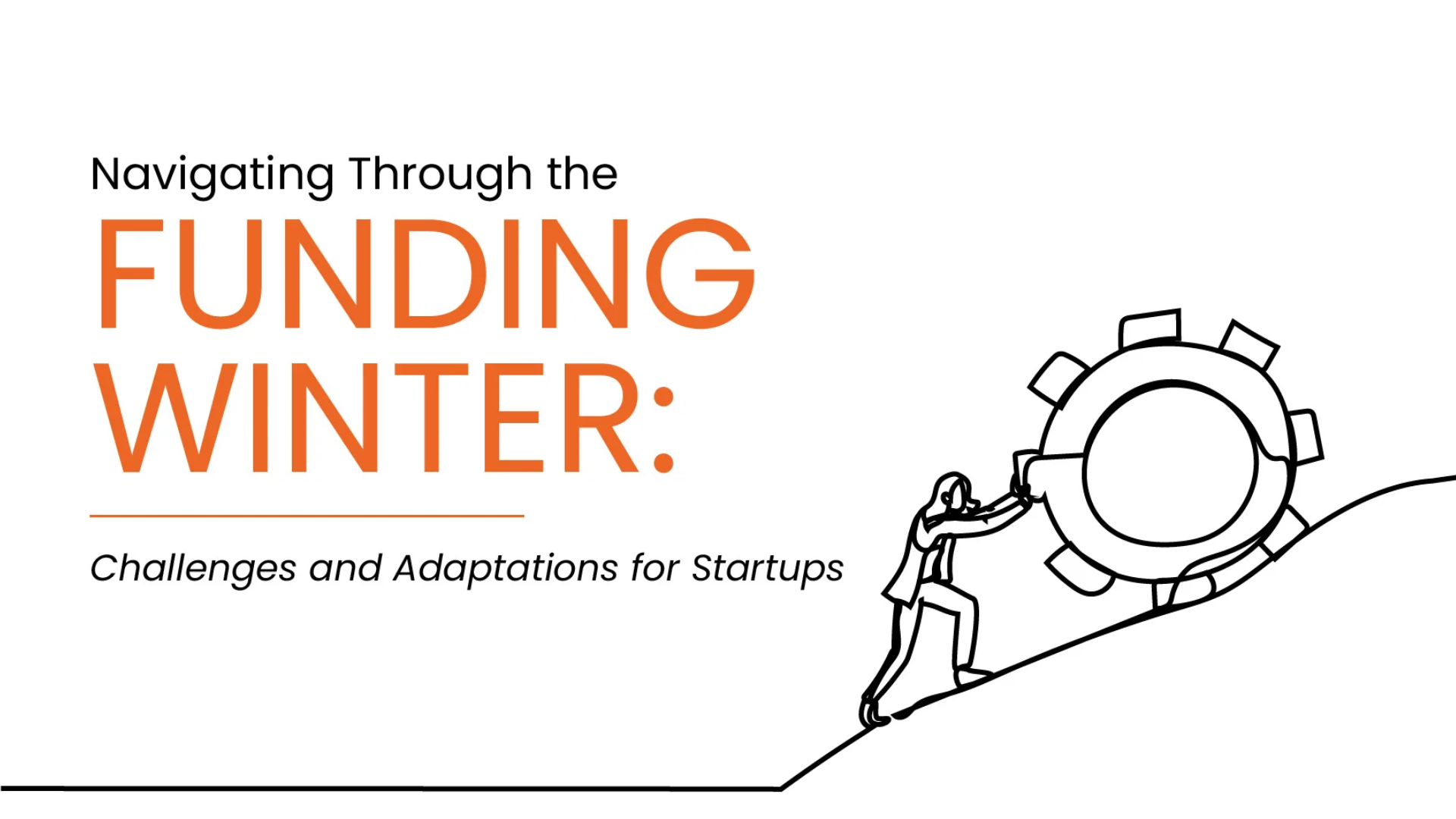Authored By: Gireendra Kasmalkar
The period known colloquially as the “Funding Winter” represented a significant challenge for startups globally.
Characterized by a sharp decrease in venture capital funding, this era forced startup founders to confront harsh realities and make difficult decisions. It was a time when the buoyant market of previous years retreated, leaving many entrepreneurs grappling with the new demand for financial prudence and strategic foresight.
Impact on Startups
During the Funding Winter, the contraction in available capital meant that startups could no longer rely on the abundant funding that had fueled rapid growth in prior years. This shift required founders to prioritize cash conservation over expansion.
They had to focus intensively on core business viability, and often rethink their business models to survive in a suddenly unforgiving economic landscape.
Adaptive Strategies Employed by Founders
To navigate these challenging times, savvy startup founders adopted several key strategies:
1. Cost Management
Tightening budgets became essential, with a focus on reducing burn rates and extending the runway as long as possible without compromising critical operations.
2. Strategic Pivoting
Just as the investors stopped funding, customers stopped spending as liquidity dried up. Many startups found it necessary to pivot their business models.
They started targeting new markets or adjusting their service offerings. The goal was to align with the changed economic conditions and customer preferences that emerged during the Funding Winter.
3. Communicating with Stakeholders
Transparent communication became crucial as founders needed to manage the expectations of existing and potential investors, employees and other stakeholders. They must be aware of the future prospects.
Adjusting Valuations: The New Reality for Startup Founders
High Valuations and Their Impact
During the boom years preceding the Funding Winter, startups frequently benefited from high valuations. These were driven by a competitive investment landscape and abundant capital.
However, these inflated valuations often came with heightened expectations and pressure to grow rapidly. And sometimes at the expense of developing a sustainable business model.
As the Funding Winter set in and capital became scarce, many startups faced the tough reality of needing to justify their worth.
Or, accept down rounds (lower valuations in subsequent funding rounds) to secure the necessary funding.
1. Rationalizing Expectations
Startups had to align their business projections and growth targets with more realistic market conditions. Valuation which was linked to projected growth was bound to fall.
2. Alternative Path to Profitability
In the face of valuation adjustments, the alternative to fund-raising was operational efficiency and a path to profitability. Once profitable, there is no need for the constant pressure to scale and raise funds. It proved the startup’s resilience and long-term viability.
Growth Strategies for Startups In A Post-Funding Winter Landscape
As the market begins to stabilize and emerge from the Funding Winter, startup founders are presented with an opportunity to rethink and refine their growth strategies.
This phase is about strategically positioning the startup for sustainable growth and leveraging the lessons learned during tougher times.
Budget Optimization
Startups must continue practising the financial prudence that was essential during the Funding Winter. But with a focus now on investing in business areas that promise the highest return on investment, rather than trying too many different things.
Early-stage startups must implement rigorous financial controls that emphasize cost efficiency, debt management, and revenue predictability. These practices lay a foundation for financial health that can weather economic downturns.
Cash Flow Management
The emphasis must be on managing cash flows effectively, ensuring that the startup remains financially healthy. This requires revisiting pricing and payment terms and the discipline to stick to it.
Establishing healthy runway
Continue to prioritize maintaining the runway. This can help your startup navigate through uncertain times without needing to drastically alter operations or seek immediate funding under unfavorable conditions.
Fortifying Your Startup Against Future Fluctuations
Building resilience is not just about surviving the next downturn but thriving through it by being well-prepared and responsive.
Here are some core Strategies for enhancing resilience.
Adaptive Operational Strategies
- Operational Flexibility
Startups must develop an operational framework that allows for scalability—both up and down—without significant disruptions. This includes flexible workforce solutions, variable cost structures, and agile supply chain management.
- Path to Profitability
When a startup is on the path to profitability, they have a choice. If the funding environment is good they can raise funds and target growth instead of profitability.
But if the funding environment is not good they can afford not to raise funds and target profitability instead of growth. This is possible when the revenue and margins are sufficient to cover the basic operational costs.
- Building Resilience and Adaptability
Startups have to engage in scenario planning exercises to prepare for potential future disruptions, learning from the previous downturn. Founders should also show the way, making the business model more flexible to quickly adapt to changing market conditions or customer preferences.
Steering Your Startup Towards Sustained Success
The complex landscape following the Funding Winter, will not just be about recovery. It will be about seizing the opportunity to redefine the trajectory of your startup.
A new phase offers the chance to implement learned lessons, refine business practices, and strategically position your startup for sustained success.
Key Takeaways for Startup Founders
1. Adjust and Innovate
As the Funding Winter looks to be near its end, founders require a balance between financial prudence and strategic innovation. Founders must continue to adjust their business models and operations keeping in mind that the current situation is likely to change upwards or downwards.
2. Build Resilience
The strategies discussed underscore the importance of building a resilient startup that can withstand and thrive in future economic cycles. This involves strong financial discipline and operational adaptability.
3. Focus on Sustainable Growth
Moving forward, the emphasis should be on sustainable growth rather than rapid expansion. This growth should be strategic, well-planned, and reflective of both the startup’s capabilities and market demands and capable of surviving irrespective of the funding situation
“Funding Winter” is a great term. While it indicates a cooling down of the funding environment, it also indicates that it is a season!
Just as life must go on as summer changes to winter and winter changes to summer, business must continue irrespective of the funding scenario going up or down. The term is a great pointer to the inevitability of these cycles that startup founders must keep in mind no matter what the current situation is.





